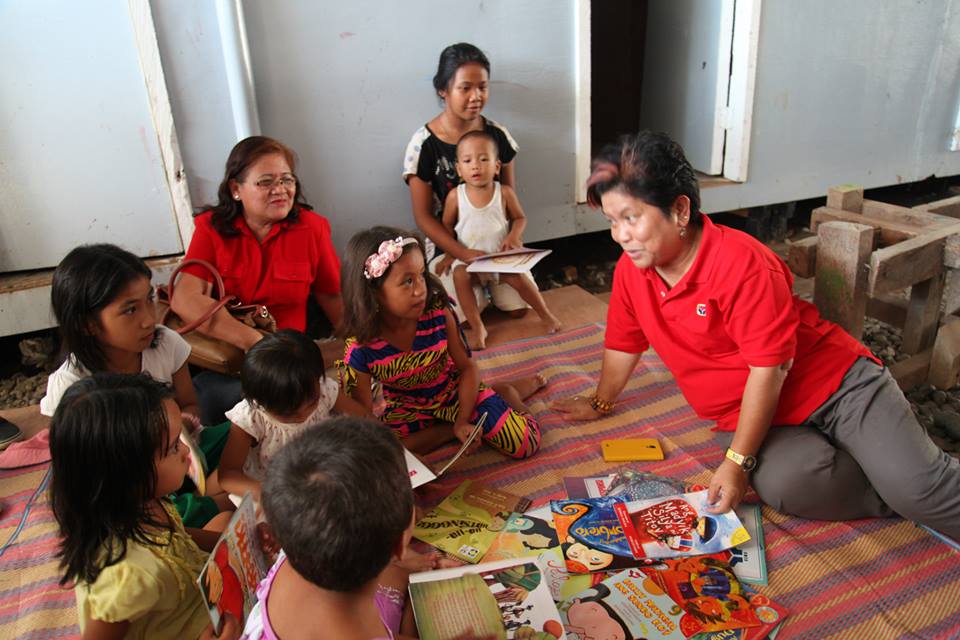
” width=”960″ height=”640″ /> DSWD Sec. Dinky Soliman with children. File photo courtesy of DSWD on Facebook.
MANILA — The Department of Social Welfare and Development (DSWD) is intensifying the implementation of its Supplementary Feeding Program (SFP) nationwide to ensure that day care school children are well-nourished as they attend classes for the coming school year.
DSWD Secretary Corazon J. Soliman said on Monday that for the school year 2014-15, the DSWD is targeting to serve under the SFP a total of 1,778,274 children in 53,463 day care centers in 1,630 local government units (LGUs) across the country.
“SFP is the provision of food, in addition to regular meals, to currently enrolled day care school children as part of DSWD’s contribution to the Early Childhood Care and Development (ECCD) program of the government,” Soliman explained.
She added that is also DSWD’s contribution to the United Nations Millennium Development Goal (MDG) of eradicating extreme poverty and hunger among children.
The additional hot meal daily is composed of rice and nutritious viands (meat/fish/vegetables) prepared by parents who have been organized as Day Care Service Parents Group.
These parents are being supervised by day care workers and Municipal Social Welfare and Development Officers (MSWDOs).
In the preparation of the menu, the day care workers consider the inclusion of vegetables mostly preferred by day care children.
Most of the vegetables included in the preparation are those that are commonly available in the area or school garden.
The child-beneficiaries will be weighed at the start of the feeding program and three months thereafter.
The feeding program will be good for 120 feeding days.
After that period, the improvement in the nutritional status of the children will be determined by weighing them again.
The feeding program aims to give nutritious meal to malnourished pupils.
“This program prevents absenteeism or poor school performance of children because their empty stomach is being filled with nutritious meals,” the DSWD chief said.